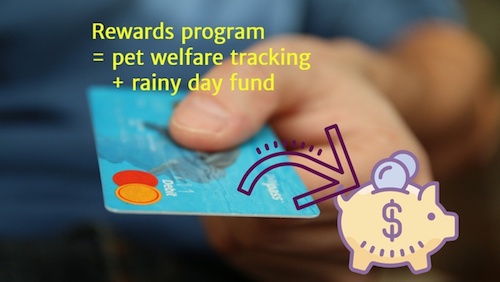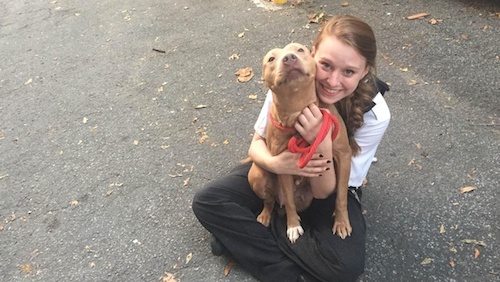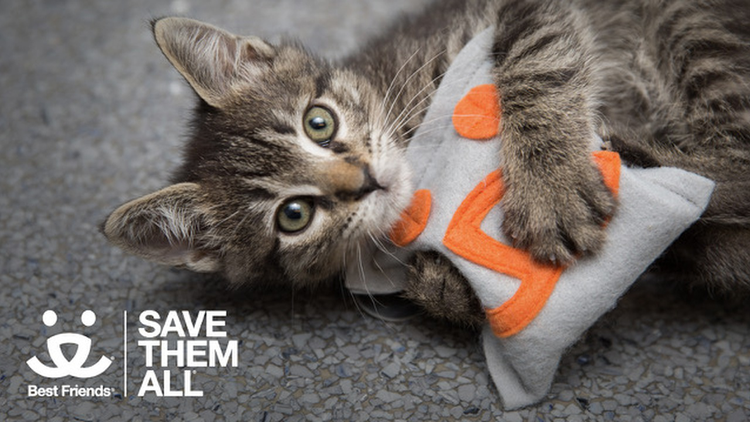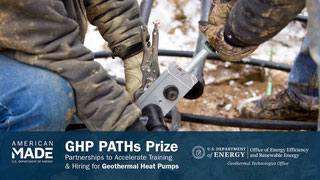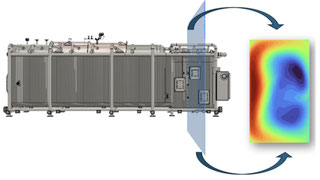The Problem
Every day, more than 4,100 dogs and cats are killed in our nation’s shelters, simply because they don’t have safe places to call home.
Community organizations across the country offer resources to support pet owners with financial, housing or other issues that would cause them to relinquish their pet to a shelter as opposed to keeping their pet at home. For example, a pet owner may not be able to afford the cost of licensing their pet. Another example might be that they are forced to move from their current home and cannot find pet-friendly housing. For both examples, there may be resources in their community that could help. The issue is not “what resources to provide” but “how to get the resources to the people who need them most.”
Your Challenge
Propose an idea to efficiently and effectively distribute resources to people at risk of losing their pets
Background
The top three reasons families give up their animals to the shelter are behavioral issues, medical issues, and lack of pet-friendly housing. When people are unable to provide or afford the proper resources to take care of their animals, shelter and rescue intakes increase, therefore becoming a burden on the animal welfare system.
Even worse, resource deserts exist all over the country. “Resource Deserts” is a term commonly used with human services like healthcare, but also extends to other sectors like animal welfare. In our sector, these areas occur where the pet owners with the highest need for animal resources also have the lowest awareness of, ability to afford or even get transportation to access the resources available. And, once the person decides to bring their pet to a shelter, it is extremely difficult to get them to change their mind, regardless of the resources offered at that time.
When shelters reach overcapacity, shelter killing has been seen as an inevitable and acceptable “necessary evil.” However, all across the country, grass-roots organizations, shelters, animal welfare groups, and local governments are abandoning this necessary evil and seeking permanent, systemic solutions.
Who Can Compete?
The problem of efficient and effective resource distribution is not unique to the animal welfare sector. If you have an idea for how we can solve this problem, you are eligible to compete! We welcome industry experts, non-industry experts, entrepreneurs, students, scientists - anyone, from any country (as allowed by US Law) to compete.
Additionally, if you work in animal welfare and are familiar with the problem we face, we also welcome you to contribute! Have you seen a successful intake reduction program that drastically improved outcomes in your region? Do you have an idea that you wish could be experimented and implemented at your local or regional shelter?
Participation by Best Friends employees is voluntary and must be done outside of work hours. Any winnings received by a Best Friends employee from this challenge is considered taxable income by the IRS.

What is ‘Save Them All’?
Save Them All is Best Friends’ call to action. We believe that together with you, we can end the killing of homeless pets in America’s shelters by 2025.
When Best Friends was founded in 1984, some 17 million dogs and cats died every year in our nation’s shelters. Today, that number is down to about 1.5 million. We believe that by working together, we can reduce that number to zero.
For more than 30 years, Best Friends has been working to end the killing by running innovative grassroots programs, supporting spay/neuter and trap-neuter-return (TNR) programs, promoting shelter adoptions, fighting puppy mills and breed-discriminatory laws, educating the public about animal issues, holding major adoption events, and conducting both large- and small-scale animal rescues.
Additionally, the Best Friends Network brings together more than 2,100 animal welfare organizations across the country to help save as many lives as possible. Together, we won’t stop until we Save Them All.
The Challenge
This Challenge is seeking a proposal that suggests novel ideas for shelters to implement in order to reduce overall shelter intakes. We need you to share your ideas on how shelters can more effectively and efficiently administer available resources to the homes most in need.
PHASE I
Quick Idea Round: In 1,500 characters, write up your idea.
Your idea should include a brief elevator pitch including these 3 points:
- Identify a resource or support that assists in keeping pets at home (500 characters)
- Identify the barriers to efficiently distributing this support (500 characters)
- Suggest strategies to effectively distribute support despite barriers (500 characters)
We will select our favorites to each receive $500. The top submissions will enter into a 2-week Crowd Voting Phase, with the Crowd Favorite receiving $500 in additional cash. Innovators may submit multiple ideas.
Note: This is a non-elimination round, meaning that all participants will be able to advance to the Final Round with an opportunity to win the $10,000 grand prize. Additionally, late entrants will also be eligible to compete in the Final Round.
PHASE II
Final Round: Submit 3-5 page document adding more detail to your original idea. The Grand Prize Winner will receive $10,000 and the 2nd Place Winner will receive $2,000.
Your Proposal
Requirements:
- Must be anonymous! Please do not include your name or identifying information anywhere on your document.
- Must not exceed 5 pages in length
- Must be submitted as a PDF document in the Submission Form
- Must include the following 4 sections:
- Pet Resources: Identify a resource or support that assists in keeping pets at home
- Distribution Barriers: Identify the barriers to efficiently distributing this support
- Highest Need Homes: Tell us how to identify the people that need support the most
- The Solution: Create a system to effectively distribute resources to the homes at need despite the existing barriers.
Who Can Compete?
The problem of efficient and effective resource allocation is not unique to the animal welfare sector. If you have an idea for how we can solve this problem [link to Overview Tab], you are eligible to compete! We welcome industry experts, non-industry experts, entrepreneurs, students, scientists - anyone, from any country to compete.
Additionally, if you work in animal welfare and are familiar with the problem we face, we also welcome you to contribute! Have you seen a successful intake reduction program that drastically improved outcomes in your region? Do you have an idea that you wish could be experimented and implemented at your local or regional shelter? Click Accept Challenge above to register to compete today.
The Prize
Best Friends will award up to $15,000 in overall cash prizes:
Phase I
- Up to 5 Winners - $500 each = $2,500
- Crowd Vote Winner - Additional $500
Phase II
- Grand Prize Winner - $10,000
- Second Place - $2,000
Best Friends employees: If no Best Friends employee places as a winner in Phase 1, Best Friends will award an additional $500 to the top employee submission. Similarly, if no employee places as a winner in Phase 2, Best Friends will award an additional $2,000 to the top Phase 2 employee submission.
Judging Criteria
Minimum Criteria
At a minimum, submissions must address the following 4 steps:
- Pet Resources: Identify a resource or support that assists in keeping pets at home
- Distribution Barriers: Identify the barriers to efficiently distributing this support
- Highest Need Homes: Tell us how to identify the people that need support the most
- The Solution: Create a system to effectively distribute resources to the homes at need despite the existing barriers.
**Ideas must be applicable to shelters within the United States
Competitors will be scored on the following metrics:
|
Metric
|
Description
|
Points
|
|
Effectiveness
|
Does the solution increase the flow of resources to homes in need?
|
20
|
|
Knowledgeability
|
Does the submission clearly identify the existing issues, with a display of an intimate understanding of the barriers?
|
20
|
|
Relevance
|
Does the idea apply to all people with pets, specifically those with the highest need?
|
20
|
|
Creativity
|
Is the submission innovative, offering new ideas to the animal welfare industry? Even if it has been done within animal welfare before, could it be the missing link for other shelters or regions in the United States?
|
20
|
|
Scalability
|
Is the idea specific to a certain region or shelter, or can it be scaled to apply to several regions across the United States?
|
20
|
|
TOTAL
|
|
100
|
Phase I Submissions
Submissions will be public. Character limits include spaces.
- Identify a resource or support that assists in keeping pets at home (500 characters)
- Identify the barriers to efficiently distributing this support (500 characters)
- Suggest strategies to effectively distribute support despite barriers (500 characters)
- Take a selfie video telling us what achieving a “No Kill” across the country by 2025 would mean to you. [Optional] (2 mins max)
Phase II Submissions
Character limits include spaces.
- Briefly describe your idea for how to keep more animals home. How can shelters more effectively and efficiently administer available resources to the homes most in need? (2000 characters)
- Do you have a personal story that serves as your inspiration for this proposal? To provide context for your submission, what personal experience or animal led you to this idea? (2000 characters)
- Upload your 3-5 page proposal here. Ensure you have followed the 4 headings:
- Pet Resources
- Distribution Barriers
- Highest Need Homes
- The Solution
- The Solution Take a selfie video telling us how your idea helps us in our goal of achieving no-kill nationwide by 2025. [Optional] (2 mins max)
Proposal Requirements:
- Must be anonymous! Please do not include your name or identifying information anywhere on your document.
- Must not exceed 5 pages in length
- Must be submitted as a PDF document in the Submission Form
- Must include the following 4 sections:
- Pet Resources: Identify a resource or support that assists in keeping pets at home
- Distribution Barriers: Identify the barriers to efficiently distributing this support
- Highest Need Homes: Tell us how to identify the people that need support the most
- The Solution: Create a system to effectively distribute resources to the homes at need despite the existing barriers.
Additional Rules
Participation Eligibility:
The challenge is open to all adult individuals, private teams, public teams, and collegiate teams. Teams may originate from any country. Submissions must be made in English. All challenge-related communication will be in English.
No specific qualifications or expertise in the field of animal welfare is required. Prize organizers encourage outside individuals and non-expert teams to compete and propose new solutions. Best Friends employees are eligible to compete, however we have made the submission elements anonymous in order to prevent partiality during the judging process.
To be eligible to compete, you must comply with all the terms of the challenge as defined in the Challenge-Specific Agreement, which will be made available upon registration.
Registration and Submissions:
Submissions must be made online (only), via upload to the HeroX.com website, on or before Friday, June 15th, 2018 @ 4:59 pm PST. All uploads must be in PDF format. No late submissions will be accepted.
Selection of Winners:
Based on the winning criteria, prizes will be awarded per the Judging Criteria section above. In the case of a tie, the winner(s) will be selected based on the highest votes from the Judges.
Judging Panel:
The determination of the winners will be made by a team of Best Friends Regional Directors.
Additional Information
- By participating in the challenge, each competitor agrees to submit only their original idea. Any indication of "copying" amongst competitors is grounds for disqualification.
- All applications will go through a process of due diligence; any application found to be misrepresentative, plagiarized, or sharing an idea that is not their own will be automatically disqualified.
- All ineligible applicants will be automatically removed from the competition with no recourse or reimbursement.
- No purchase or payment of any kind is necessary to enter or win the competition.
- Void wherever restricted or prohibited by law.
